Story and photos by Marie Tjernlund
generous [jen-er-uh s] adjective
1.liberal in giving or sharing; unselfish: a generous patron of the arts; a generous gift.
2.free from meanness or smallness of mind or character; magnanimous.
3.large; abundant; ample: a generous portion of pie.
4.rich or strong in flavor: a generous wine.
A man with muscular arms and a chiseled jaw strides onto the patio. His uplifted hand carries an oval plate that holds a mountain of golden pasta glistening with melted cheese. He leans toward the customers and slides the plate off his hand onto the tabletop. The man lingers for a moment, his hands gently resting on the shoulders of one patron. Friendly banter ensues. With a quick wink and a wry smile, the man returns to the kitchen.
Pushing through saloon doors, the man enters a bustling kitchen. Rich aromas of cheese, pancetta, and spice fill the room. The man transitions from waiter to chef. He blends penne and sauce in a large aluminum bowl set on the stainless steel island. With a well-worn, wooden spoon, the man pours the creamy creation onto a plate. He snatches a block of hard cheese and a grater for a few fresh strands of parmesan. The plate is whisked to customers leisurely resting at a table laden with carafes of hearty wine and bottles of sparkling water.
This man is Lorenzo Pazzaglia, owner and chef of RIstorante Il Poggio. Strong and confident, with distinctively spiked hair and a polite smile, Lorenzo has a formidable and charismatic presence.
The secret to the success of this family-owned business is largely due to Lorenzo’s enthusiasm for authenticity and his generosity in his approach to food. A 14-page menu offers dozens of varieties of fresh and savory recipes for pastas, pizzas, risottos, and insalatas that inspire and satiate the hungriest of patrons. First-time customers and regulars eat family style, sharing culinary creations bursting with native flavors. Securing a table for dinner on a weekend requires reservations.
The name Poggio translates to “hill.” Located above the city of Cagli, bordered by a row of large shade trees, Il Poggio stands in stark white against the blue sky. The building is half residence and half business, and its furnishings are simple and casual. The restaurant seems to beckon to customers to come in, have a seat and be among friends.
One of the most famous items on the menu is Spaghetti alla Carbonara, a creamy dish of pasta, cheese, eggs, pancetta (bacon), and black pepper.
Spaghetti alla Carbonara has a vague history. Popular legend has it that the dish became popular during the 1940s when war rationing forced Italians to subsist on bacon and powdered eggs. Others say the name carbonara, which roughly means “in the manner of coal miners,” was a popular dish among workers. Regardless of its humble beginnings, Spaghetti alla Carbonara remains a popular dish throughout Italy and around the world. According to Lorenzo, people travel hundreds of miles to enjoy the specialty at Il Poggio. Liberal portions at reasonable prices keep them coming back.
A ceramic chili pepper hangs high on the kitchen wall. Departing from traditional Italian cuisine is part of the lure of Il Poggio. Lorenzo has a passion for spice—exceptionally hot spice. Around the corner from the large outdoor patio lies a small garden hosting a dozen varieties of hot peppers. Lorenzo cultivates and imports more than a hundred hot chili peppers from around the world to incorporate into his menu. Some are served fresh, others dried and ground. The most potent are simmered and reduced to a frightening intensity.
Scalding hot peppers including Naga Viper, Trinidad Scorpion, Bhut Jolokia (ghost pepper), and Smokin Ed’s Carolina Reaper can be added to a special selection of pizzas and pastas that challenge the bravest of diners to a sweltering contest of wills. Customers who successfully attempt to consume the “world’s hottest pizza” at Il Poggio not only gain bragging rights, they also receive a commemorative T-shirt and what is certain to be a raging case of indigestion.
The afternoon turns to evening. Hot coals flicker in the fireplace in the kitchen corner. Rustic rosemary bread sizzles in the heat; it will soon be removed and drizzled with olive oil and sprinkled with rock salt. Pans on the gas stove are shaken and stirred. Cooks and waiters move in rhythm as pots bang together, cupboards open and close. Lorenzo’s sister calls out for ingredients. His tall brother-in-law flashes a brilliant wide smile as he jokes with one of the waiters. Mushrooms saute in olive oil. Lush ripe melon is cut into slices and set aside on a tray filled with prosciutto. Delightful aromas of butter, cheese, and truffles fill the air.
Working the dining room, Lorenzo sets out clean wine glasses and menus for the newly arriving guests. Patient and engaging, he makes gentle recommendations. His piercing eyes crinkle, and after making a quick note on his order pad, he is back in to the kitchen to get the meals underway.
Just as art is an expression of an artist, cooking reveals the personality of the chef. At Il Poggio, Lorenzo Pazzaglia reveals his passion, imagination, and generous spirit. He creates meals that not only nourish the body, they nourish the soul – one overflowing plate at a time.


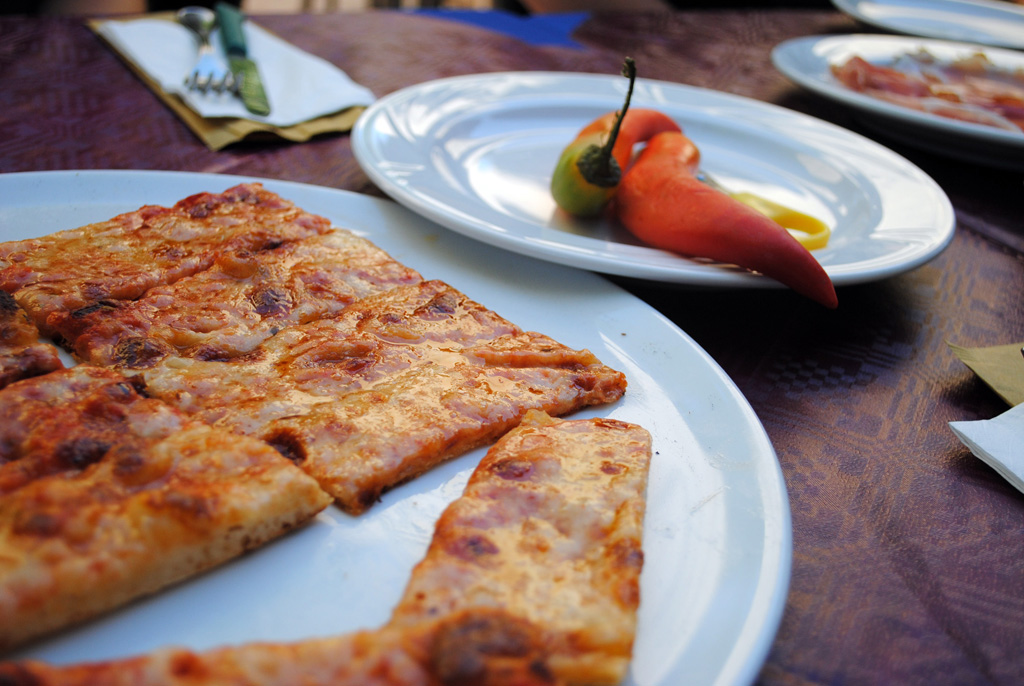
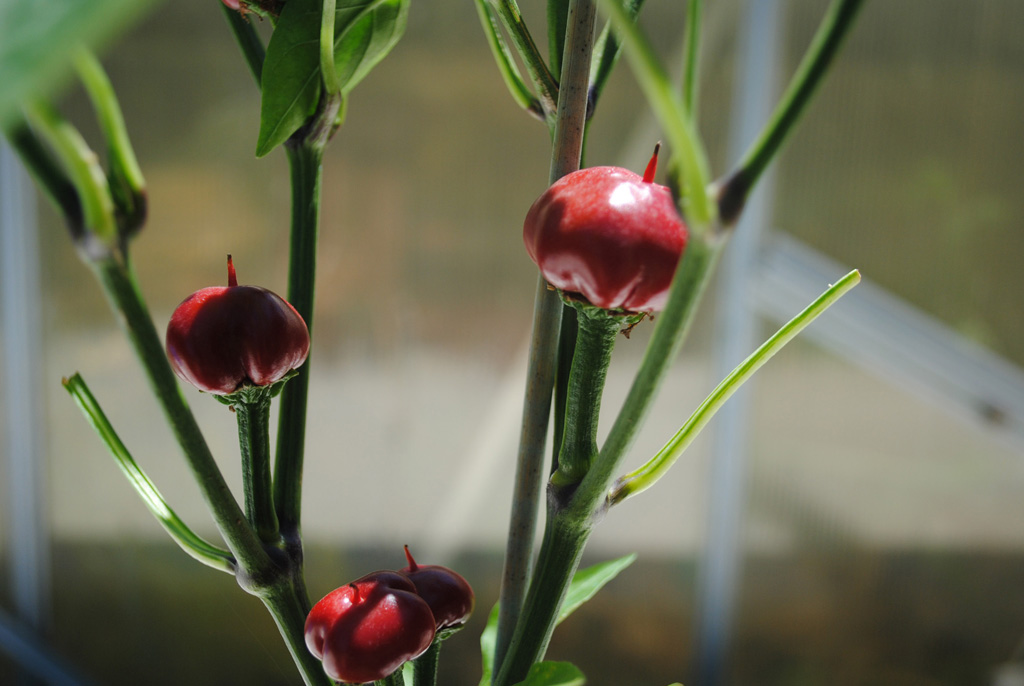
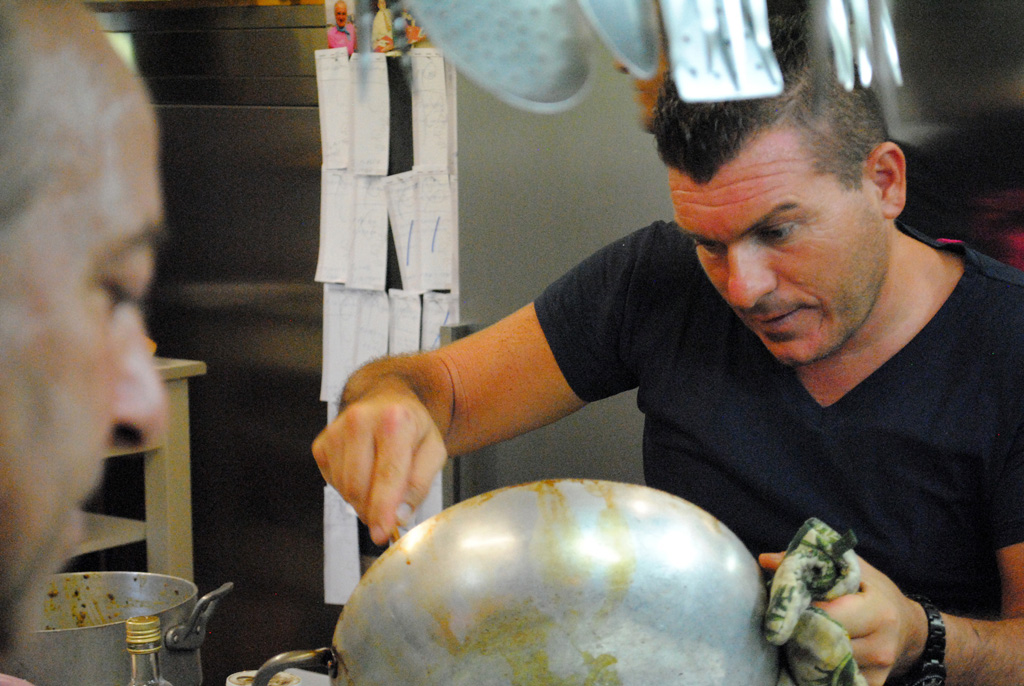
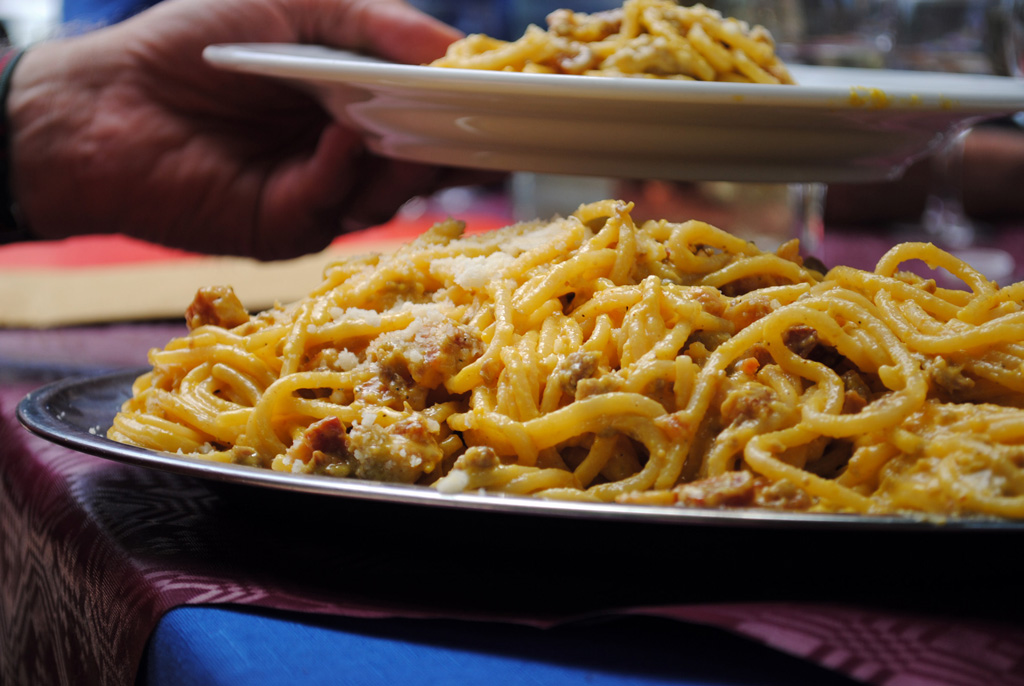
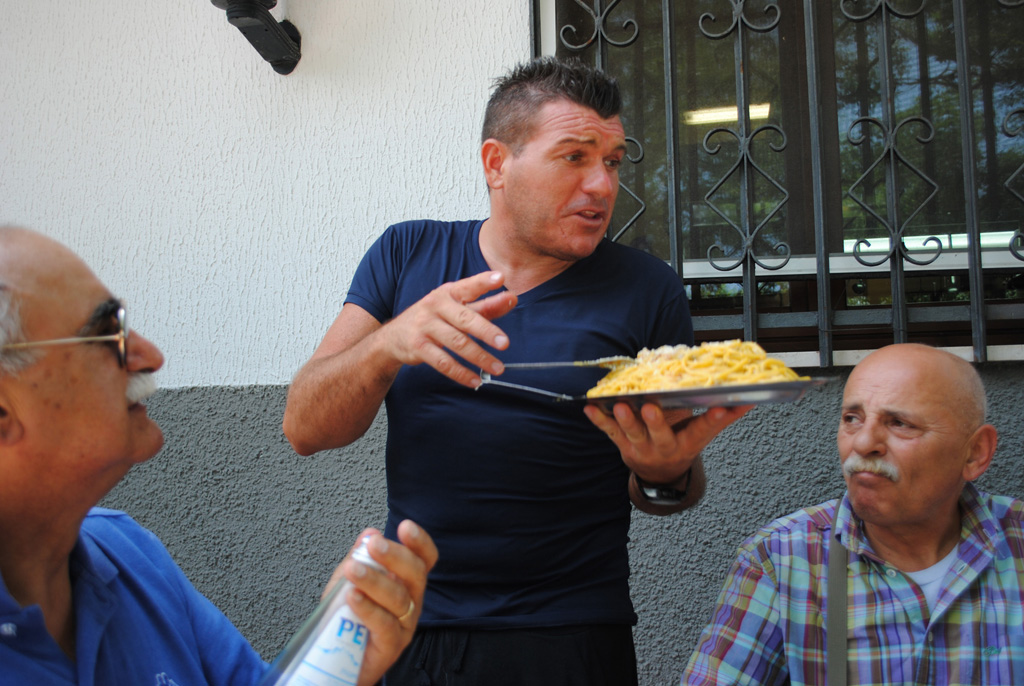

Comments